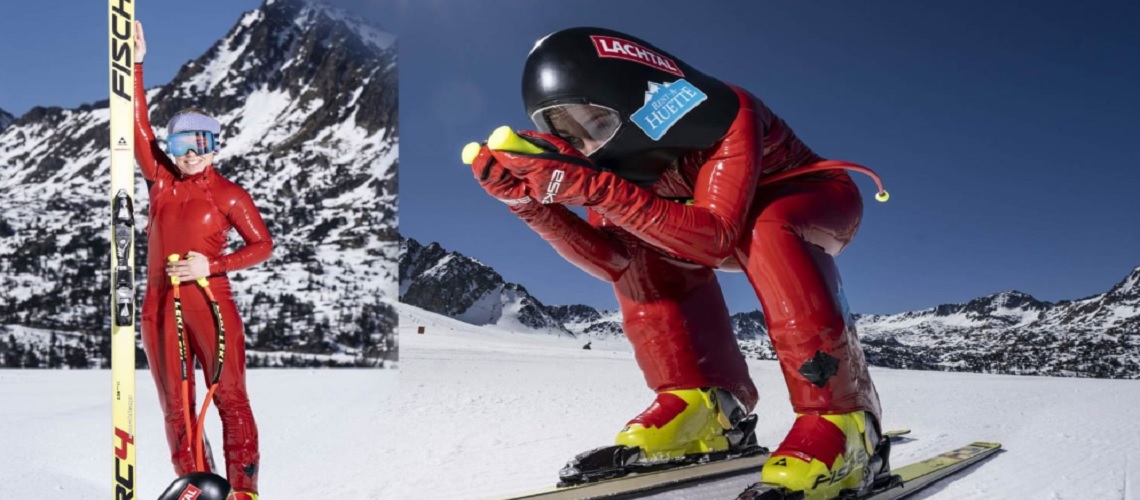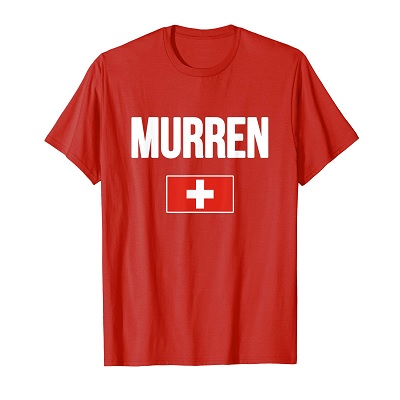FIS Q&A With Nicole Schmidhofer

Nicole Schmidhofer is part of the Austrian Ski Association.With an impressive double victory in Lake Louise, she won her first Downhill Globe last season. One of the most entertaining characters of the Women’s World Cup, she always pushes herself over the limit..217.590 km/h-- isn’t this enough? She spoke to FIS.
Last season was definitely the best season you ever had, in terms of consistency. You recorded your first World Cup victories in Lake Louise and the downhill globe at the end of the season, which means you have been the strongest downhiller throughout the season. What did it mean to you?
It's still unbelievable for me! I've been in the world cup for a long time and my big goal for this season was to be constantly in the top 5 and in the top 3 of a discipline ranking at the end. With the two victories in Lake Louise I had a dream start to the season. Wearing the red jersey for the first time,was something very special and gave me extra motivation at every race. The downhill crystal globe is the reward for a long, hard work with many sacrifices and a great teamwork. It reflects the performance of a whole season,where I showed a very good performance. But It was only possible with the perfect combination of support from family, coaches, service technician, teammates, physios and friends.
Your teammates Stephanie Venier and Ramona Siebenhofer share the Downhill final ranking podium with you, what does mean to you having this strong team?
Our team spirit made this result possible. We are not only team mates, but also friends who go out for a coffee together or sit at the bar in the evening. We are having fun together, which I think is important, and we push and help each other. We often inspect the course together and pass on radio messages to the start to get the best results possible. When someone is on the podium, everyone from the team is always there in support and this sense of community makes us strong!
What was the key of your successes last season?
I can't say for sure, but it's a combination of many components. After the Olympic season two new coaches joined the team, that was just one of the things that made a difference. Flo Scheiber had been part of the austrian men’s World Cup speed team until 2016 and Wolfi Grabner is a very experienced coach. They introduced new inputs and views to the team, that gave me a lot of help. My service technician Berni Arnitz and I were also able to take an important step forward together with the Fischer company in regards to my racing equipment. I’ve also been able to increase my physical strength, which was very important, because the season is very strength-sapping and I had previously always lost a lot of weight during the competition in the last year.
It has been more important to win the DH Globe or the Gold medal at St.Moritz World Championship in super-G?
For me the victories are very difficult to compare! Emotionally nothing beats the gold medal. It was very unexpected after my knee injury in preseason. Also the fact that my parents came to watch me racing in St. Moritz, which is rather rare, was insane. I will never forget these emotions that were created during the race. Also the amazing welcome celebration in my home Lachtal was unbelievable. From a sporting perspective, the crystal globe means more. It's the result of a whole seasons performance. It's not the daily condition or one good run that counts. A lot of races have to run well and you have to give your full commitment for four months. I am super proud of both and don't want to rank anything above the other.
At the end of this incredible season, you broke another record: Skiing to a top speed of 217.590 kilometers per hour, pulverizing the previous Austrian record and also finishing an impressive fourth place in the event, barely missing a medal. Why did you decide to take part in this event?
I wanted to participate already in a speed event a year earlier, but it didn't fit into the program. When I had the opportunity this year to race on a track where I can ski over 200 km/h, I didn't hesitate. Also, the circumstances with the finals in Andorra and the training possibility there worked out together very well. The effort for me with traveling and preparation was "relatively" low. That the competition was the World Championships was a coincidence. My goal was to go over 200 km/h, and when I qualified for the best 5 for the finals, I naturally wanted to compete for the medal. The 4th place was a matter of bad luck, but for having made only a minimal effort it is very considerable, and the 217,59 km/h are more than I had hoped for.
What was the best sensation you had? Is it comparable to ski racing?
No, it's hard to compare. The material is completely different. Longer, wider skis, a latex suit that doesn't let air through, a full visor helmet where the visibility is very limited. Also the squat position is different. If we go into a low position in alpine skiing, the terrain is medium to rather flat, meanwhile the speed ski-slopes are very steep, so the focus is completely different. The sound is also very different when you ride fast. When you get over 200 km/h, it gets very calm in the helmet and you can ́t hear the wind anymore.
Saying that, what other extreme sports you do?
No, there's no other extreme sport that I participate in. Until further notice I don’t plan another Speedski-competition. The risk of an injury is very high, this time everything worked out fine for me, but I don't want to risk anything in the next few years.
How do you find the motivation to push yourself over the limit?
After a season with many successes the motivation is automatically high and I don't really need to push myself. I’m trying to push my limits, but I rarely go beyond them, I'm not that kind of person. For me everything must always feel safe and good. Therefore the goal is to push the limit upwards but don't exceed it.













